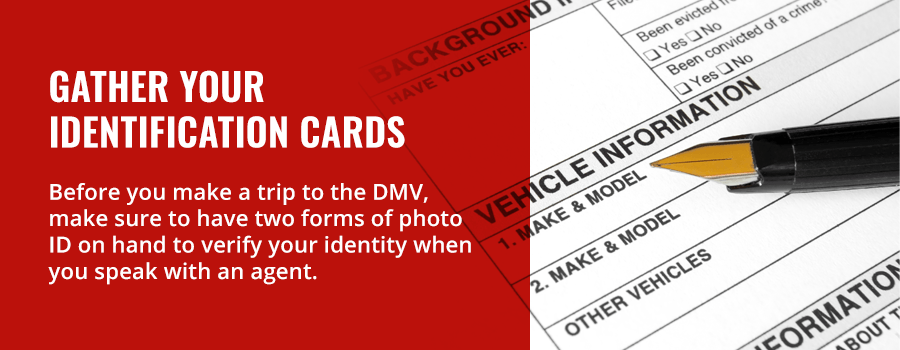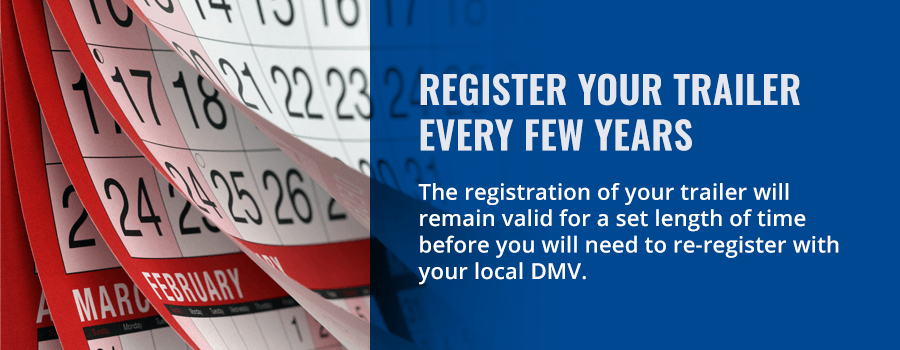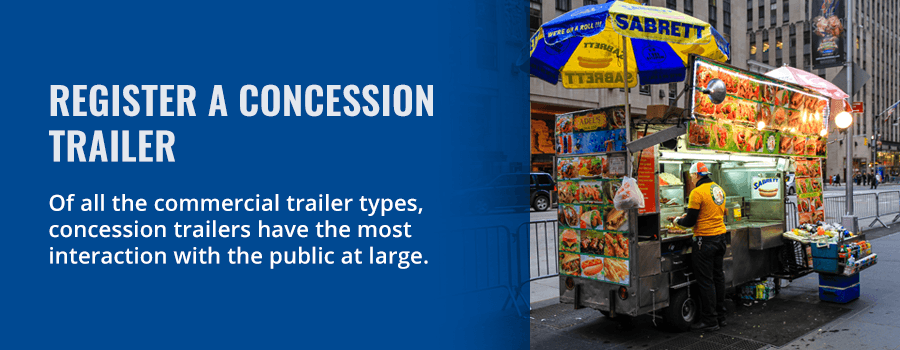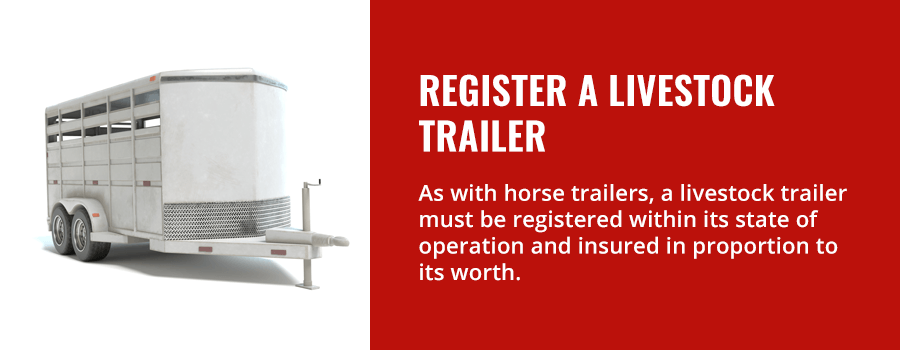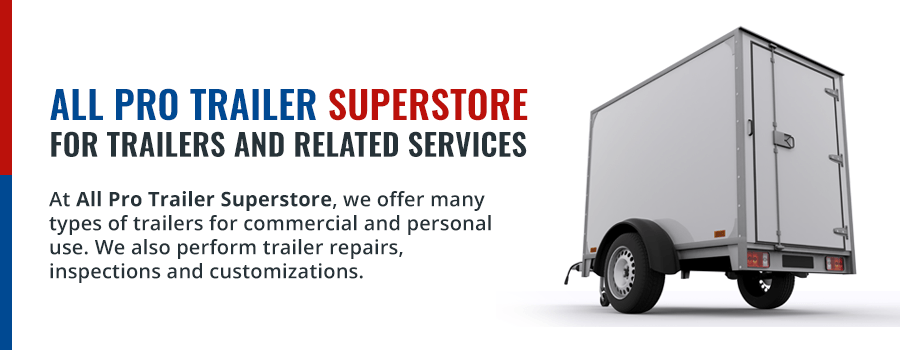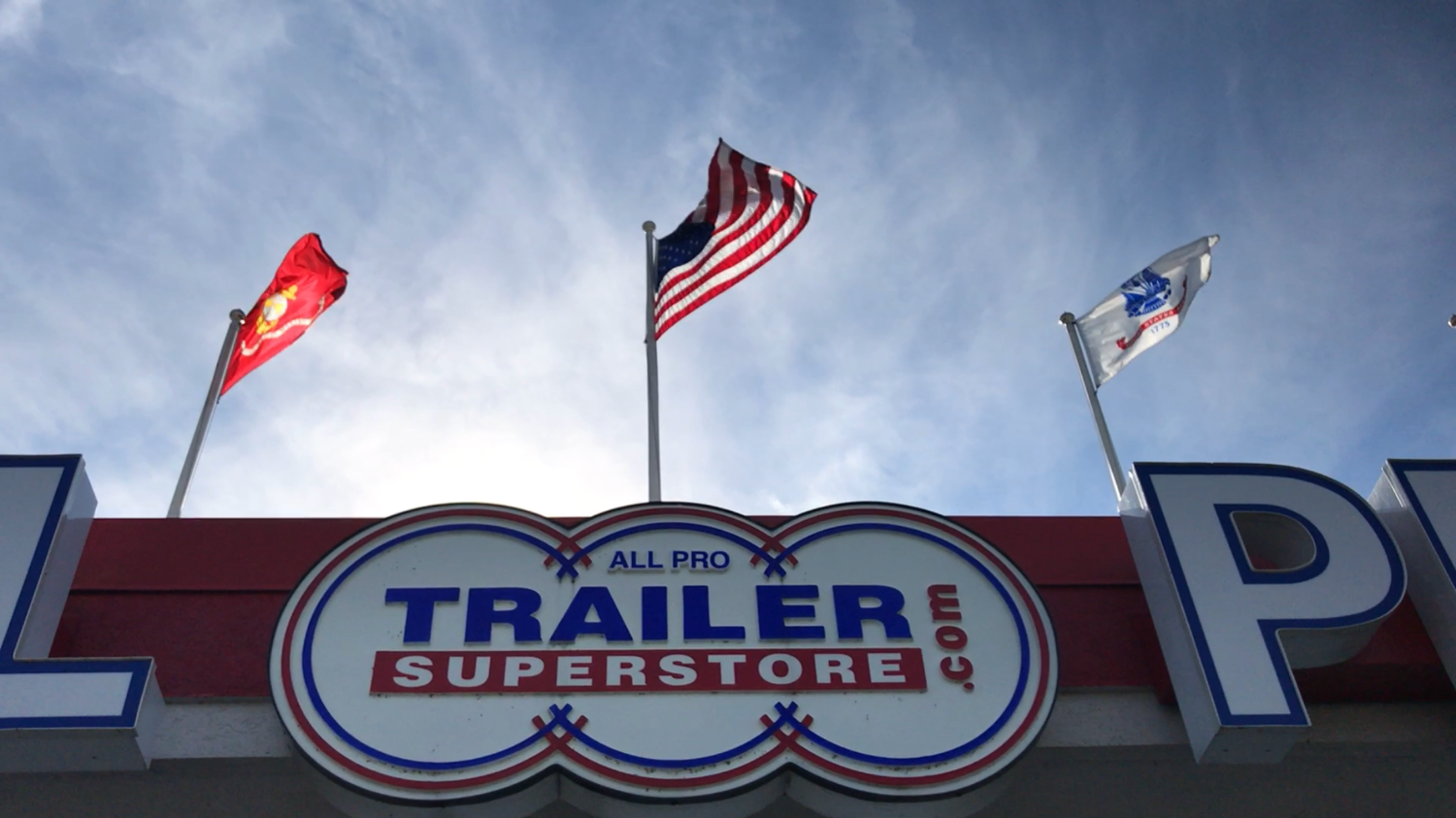How to Register a Trailer
Aug 28, 2018Last Updated on September 30, 2024 by John Myers
Last Updated on September 30, 2024 by allprotrailersuperstore
Most states require you to register a trailer within 30 days from the date of purchase. Laws regarding title and registration vary from state to state, but the penalties for going unregistered are stiff in most of the states that do have this requirement. The longer you procrastinate on registration, the costlier the fines are liable to be for your untitled trailer.
Table of Contents
- Trailer Title and Registration Requirements
- Register Your Trailer Every Few Years
- Complete the Registration of Your Trailer
- Registration for Different Types of Trailers
- Register an Auto Hauler
- Register a Bulk Trailer
- Register a Concession Trailer
- Register a Dump Trailer
- Register a Freight Trailer
- Register a Gooseneck Trailer
- Register a Horse Trailer
- Register a Livestock Trailer
- Register a Logging Trailer
- Register a Pole Trailer
- Register a Tilt Trailer
- Register a Motorhome
- All Pro Trailer Superstore for Trailers and Related Services
Trailer Title and Registration Requirements
Before registering a trailer, you will generally need to submit a signed title to verify your ownership. Alternately, you might be able to use a manufacturer’s statement of origin. You will also need to sign and submit an application for the license and title of the trailer, along with receipts of applicable property taxes. Finally, you will need to pay the registration fees.
Research Local Registration Laws
Do some research into the laws as they apply in your jurisdiction regarding trailer registration requirements. In most states, you do need to register a trailer for personal or commercial use, though the requirements vary from state to state.
The easiest way to learn about the laws that apply in your area is to visit the Department of Motor Vehicles’ website for your state. Instead, you could make a preliminary visit to your local DMV and speak with a service agent about the materials you will need to gather to register your trailer. If you do not have a DMV location in your hometown, check online or call the DMV to get directions to the nearest location.
Gather Your Identification Cards
Before you make a trip to the DMV, make sure to have two forms of photo ID on hand to verify your identity when you speak with an agent. For example, your driver’s license might serve as the primary form of ID, and a passport could serve as the second. If you do not have a passport, you could use a military identification card instead. If your only form of photo ID is your driver’s license, be sure to have other forms of identification on hand, such as your birth certificate and the card with your Social Security number.
Gather the Necessary Documents for the Trailer Registration Process
One of the key documents you will need to have on hand to register a trailer is the bill of sale that verifies your ownership. This document should contain all the basic information about the trailer, such as the make, model and year of production, as well as the weight and ID number of the trailer.
You should also have info on the seller in addition to your identification when you go to meet with a DMV agent to register your trailer. With all the necessary documents, the process of registration should not take long to complete.
Gather the Certificate of Title
In addition to the bill of sale, you will also need to have the certificate of title on hand when you go to register the trailer. The certificate of title is the document proving you are the rightful owner of the property in question, which would be the trailer in this case.
If you do not have the certificate of title in your possession, you will need to ask the DMV about the procedures for obtaining this document. In some cases, such as when you have only recently purchased the trailer, you might not have the certificate of title.
Safety Inspections
The DMV will not register a trailer that is unsafe for active personal or commercial use. Some trailers must undergo a safety inspection before obtaining registration. Trailers that are old or that have changed hands between one or more prior owners are liable to be subject to this requirement.
Most DMV branches have onsite inspection stations to inspect trailers for safety. If your trailer does require a safety inspection, the DMV might issue you a temporary registration, pending the inspection date and test results. The allotted duration for this temporary registration will depend on DMV policies within your jurisdiction.
Pay the Registration Fee
The final step in the process of trailer registration involves fee payment. Once you have filled out the application forms, the DMV will require you to pay to register your trailer. The amount and purpose of these fees will depend on the laws of a given jurisdiction. Usually, you can expect to pay the sum of several fees, such as the registration, title, administration and license. If you live in a state with a sales tax, the cost will also include that amount.
Register Your Trailer Every Few Years
The registration of your trailer will remain valid for a set length of time before you will need to re-register with your local DMV. The length of time will depend on the laws of your jurisdiction and the type of trailer in question. For utility trailers, registration is valid for two years throughout the United States.
The purpose of this registration process is to establish an ownership link for each trailer on the nation’s roads and freeways. Each time you re-register a trailer, it keeps DMV files up-to-date and relevant. If the identity of a trailer owner ever comes into question, DMV registration records provide easy access to this information.
Complete the Registration of Your Trailer
After you have officially registered your trailer with the DMV, attach the license plate on the designated spot on the back of the trailer. This license number will aid in the trailer’s recovery in the event of loss or theft.
The next step after registration will be to insure your trailer with sufficient coverage. Depending on the value of the trailer and its intended use, you might need a standard insurance policy, or something more expansive.
If you intend to use the trailer for personal hauling, you will probably only need a liability or collision policy. If you plan to use it for commercial purposes, you will need to have commercial trailer insurance. In some jurisdictions, an auto insurance or commercial auto insurance policy will cover a trailer, whereas other jurisdictions require separate policies for vehicles and trailers.
Registration for Different Types of Trailers
Trailers come in numerous makes, models and sizes, but registration laws apply regardless. Whether you purchase a trailer for commercial or personal use, registration and insurance are necessary, though the coverage requirements vary according to the purpose of the trailer.
Register an Auto Hauler
An auto hauler is a large trailer whose purpose is to haul cars from one location to another. When freshly assembled cars come off the factory line, auto haulers move them to various car lots for sale to the public.
Auto haulers must get registered so law enforcement can know a licensed driver is legally operating a given hauler on the freeway. If a hauler gets stolen and used for illegal activity, the registered license number can help authorities track it and apprehend the criminals.
Register a Bulk Trailer
Bulk trailers are largely responsible for the availability of cooking products in grocery stores across North America. Of all the commercial trailers seen on America’s highways, bulk trailers play one of the most integral roles in the lives of most consumers.
Without bulk trailers, pourable and granulated products would not be available to most households in the same quantities as people have come to expect. As such, bulk trailers need to get registered and insured — both for the sake of the companies that operate such trailers, and for the benefit of America’s consumers.
Register a Concession Trailer
Of all the commercial trailer types, concession trailers have the most interaction with the public at large. Food stands and ice cream trucks are two of the more popular types of concession trailers.
To sell meals, snacks or beverages from a concession trailer, you need to cover the legal groundwork on several fronts. In addition to trailer registration and insurance for both the trailer and vehicle, you also need to have cargo insurance to protect the consumables and appliances. In many states, you will also need a food handler card or food safety inspection.
Register a Dump Trailer
One of the most important fixtures at a worksite is a dump trailer, in which excavated rocks and gravel get loaded for clearance. Alternately, dump trucks transport rocks or gravel across long distances for distribution at worksites throughout the country. Dump trailers carry heavy loads, and must get registered and commercially insured for liability.
Register a Freight Trailer
One of the largest trailer types is the freight trailer, which hauls furnishings, appliances and other inventory products between factories and department stores. Whether the fleets travel across local, regional or cross-country distances, all freight trailers must get registered and safeguarded with commercial trailer insurance. Due to the sheer size of freight trailers, registration is vital for tracking purposes in case a trailer of this type gets stolen or used illegally.
Register a Gooseneck Trailer
Gooseneck trailers are useful for commercial as well as personal purposes. Among fleets, goosenecks haul products between manufacturers and sellers. Goosenecks also support tiny houses and mobile homes. In any case, gooseneck trailers must get registered as well as insured according to the needs of their intended use, be it personal or commercial. The contents within a gooseneck should also get insured against loss or theft.
Register a Horse Trailer
Any trailer that transports horses must get registered and insured for the protection of the trailer, the horses and fellow motorists on the nation’s roads and freeways. Requirements for the extent of coverage vary by jurisdiction, and if you own horses, you must also follow the laws regarding livestock transportation.
Commercial farmers, as well as private breeders, use horse trailers. If you transport horses, you will want to have insurance that will cover the medical expenses of any horse injured in a roadway accident.
Register a Livestock Trailer
As with horse trailers, a livestock trailer must be registered within its state of operation and insured in proportion to its worth. Whether you use a livestock trailer for commercial farming, or to transport wild animals you keep as pets, you should register the trailer for tracking and identification purposes in the event of a theft. Your insurance for the trailer should also be expansive enough to cover the medical expenses for any animal that sustains injuries in an accident.
Register a Logging Trailer
Commercial trailers for log-hauling purposes must get registered and insured for the safety of the drivers and fellow motorists, as well as for the value of the trailer itself and the contents within. A logging trailer must also undergo periodic safety inspections to ensure the trailer is structurally sound to haul large and heavy logs across vast distances on the nation’s freeways. A trailer that isn’t structurally sound may fail to contain the logs properly, and they could ultimately roll and cause massive damage in an accident.
Register a Pole Trailer
Pole trailers to transport long, heavy and generally pole-shaped contents across long distances. As with log trailers, pole trailers need to undergo periodic safety inspections, in addition to registration renewals. An unsafe, uninspected pole trailer might fail to secure its contents, which could ultimately fall, roll and cause costly and lethal damage along the nation’s roadways.
Register a Tilt Trailer
Commercial tilt trailers are for heavy-duty on-ramping purposes, such as the loading of vehicles and rolling stock onto flatbeds. An improperly secured tilt trailer could endanger any vehicle in its immediate surroundings. For obvious reasons, tilt trailer owners must register, insure and periodically inspect them for proper safety.
Register a Motorhome
If you reside in a motorhome atop a trailer, you will need to register your trailer with your state’s department of transportation. The process involved is similar to the registration of a car or truck, though the steps and specific requirements will depend on the laws of your jurisdiction.
In Pennsylvania, for example, you would need to complete the paperwork for a standard vehicle registration, in addition to a motorhome certificate of compliance for van/minivan vehicles. You can grab this MV-2 form at any DMV location.
All Pro Trailer Superstore for Trailers and Related Services
Trailers serve a vast range of purposes for people both young and old. From truckers, farmers and landscapers to business owners, animal breeders and sporting enthusiasts, trailers are available in a multitude of sizes to haul everything from commercial inventory and consumable goods to livestock and vehicles.
At All Pro Trailer Superstore, we offer many types of trailers for commercial and personal use. We also perform trailer repairs, inspections and customizations. Explore our website to learn more about our trailer sales and services.



